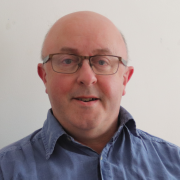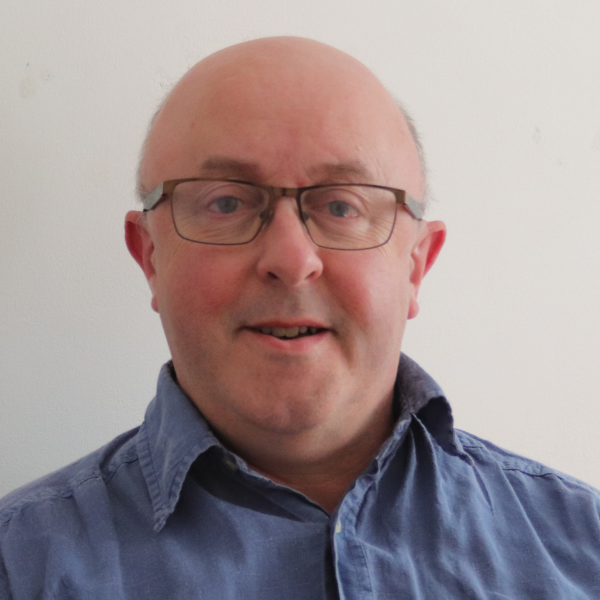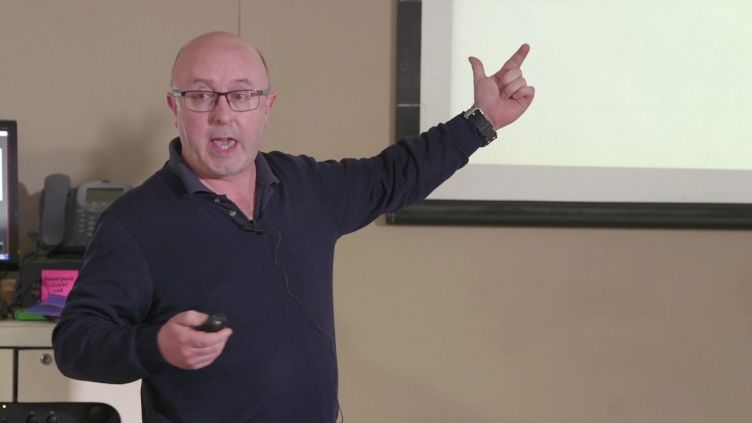Professor Adrian Moore
Department of Music
Professor of Electroacoustic Music Composition
Director of University of 91Ö±²¥ Sound Studios


Full contact details
Department of Music
Jessop Building
Leavygreave Road
91Ö±²¥
S3 7RD
- Profile
-
I am a composer of electroacoustic music. I mainly compose music intended for ‘sound diffusion’ over multiple loudspeaker systems. I direct the University of 91Ö±²¥ Sound Studios (USSS) where researchers and composers collaborate on new musical projects. My research interests are focused towards the development of the acousmatic tradition in electroacoustic music, the performance of electroacoustic music, signal processing, and human-computer interaction in music.
My music has been commissioned by the Groupe de Recherches Musicales (GRM), the Institute International de Musique Electroacoustique de Bourges (IMEB) and the Arts Council of England. A significant proportion of my music is available on 4 discs, ‘Traces’, ‘Rêve de l’aube’, ‘Contrechamps’ and ‘Séquences et Tropes’ on the empreintes DIGITALes label. My book ‘Sonic Art: An Introduction to Electroacoustic Music Composition’ is published by Routledge.
- Research interests
-
My research is primarily conducted through the creation of acousmatic music. I am very conscious of the ongoing development of my compositional practice: over 20 years of production I have noted aspects of my work that change, grow and some that remain common across the years. Realising how my research reflected back to my teaching (and was indeed influenced by it), I began to share the tools I made to create my music. This meant developing some rationale for explaining why I used one particular tool over another. Although by no means original, I began to talk about a theory of opposites: a sound suggested a development that (normally) required a particular parameter to be driven towards its polar opposite. At its most simple: short sounds need to be made longer; noisy sounds need to be made less noisy. I then suggested the most common means of implementing these transitions or developments. The noisy sound would require a filter. As development continued, our filtered sound would, ultimately, require some multiplicative method to make it tend back towards something more complex (or noisy). This all takes place as we put sounds one after the other (montage) and one on top of the other (mixing). This research led to the production of a practical textbook outlining this particular compositional method and a set of free development tools in PureData and CSound.
I see the development of artistic practice as the embodiment of skills and experiences over time. I am also acutely aware that works must set out to do more than merely bathe the ear in sound. My most recent works ‘test’ the performance practice of acousmatic music and in so doing, break the sealed nature of the acousmatic work, which - for right or wrong - ‘tests’ my compositional practice.
-
‘Routes’: returning to the 'Fractured Acousmatic': Testing the composition/performance boundaries of electroacoustic music by combining pre-composed materials, samples and diffusion at performance time.
I am currently returning to work with voices, both real and synthetic.
-
Electroacoustic opera based around artificial intelligence and the human condition.
-
- Publications
-
Books
Journal articles
- . Journal of Music, Technology and Education, 6(3), 251-254.


- . Journal of Music, Technology and Education, 6(3), 323-336.


Book reviews
Conference proceedings papers
- Cross-modality in multi-channel acousmatic music: The physical and virtual in music where there is Nothing to See. 41st International Computer Music Conference, ICMC 2015: Looking Back, Looking Forward - Proceedings (pp 186-189)


Compositions
- Audiogentry.


- Recording the Hepworth.


- Metricity.


- Inside and out...again.


- Counterattack.


- The Battle.


- Strings and Tropes.


Other
- . Journal of Music, Technology and Education, 6(3), 251-254.
- Research group
-
Research supervision mainly in the area of practice-led research through electroacoustic music composition. This may be with or without instruments. Supervision of composers writing fixed media works, installation, apps and composition software.
Current research students
- Dimitris Savva* (Cyprus): Composition
- Ian Baxter* (UK): Composition - installations and the nature of time
- Chris Bevan (UK): Composition
- James Surgenor* (UK): Composition and software design
* primary supervisor
Past research students
- Vanessa Massera (Canada): Composition
- Caterina McEvoy (UK): Composition
- Alejandro Albornoz (Chile): Composition
- Stephen Pearse (2017): Composition and software design (PhD)
- Martin-Curtis Powell (2015): Composition (PhD)
- Robert Bentall (2011): Composition (MMus)
- Louise Harris (2009): Audio-Visual interaction in electroacosutic music. Portfolio of compositions (PhD)
- Chetan Pancholi (2008): 'A sound society'. Portfolio of compositions (MMus)
- Simon Mulvaney (2007): Portfolio of Audio-Visual works (PhD)
- Niels Puttemans (2007): Fractal Mathematics in Sound Design (MPhil)
- James Mooney (2005): Sound diffusion systems (PhD)
- Nikos Stavropoulos (2005): Portfolio of Electroacoustic compositions (PhD)
- Mark Horrocks (2005): Portfolio of Electroacoustic Compositions (PhD)
- Dave Moore (2004): Real-time Sound Spatialization systems (PhD)
- Oliver Carman (2003): Composition and analysis (MMus)
- Helen Stephenson (2003): Composition and analyses (MMus)
- Professional activities and memberships
-
Sound Junction is the University of 91Ö±²¥ Sound Studios’ concert series promoting the very best acousmatic music including music made by staff and students at 91Ö±²¥.
Director of Student Engagement and Welfare; Director of Undergraduate studies.
Links

